Grappling with S$20 million net loss in 2 years, Jumbo Group is rewiring consumers to eat Chinese-style seafood in pairs
https://mothership.sg/2021/11/jumbo-group-interview/
Grappling with S$20 million net loss in 2 years, Jumbo Group is rewiring consumers to eat Chinese-style seafood in pairs
Lessons on Leadership: hard times require a hard-nosed businessman. Jumbo Group's CEO Ang Kiam Meng shows us what it takes.
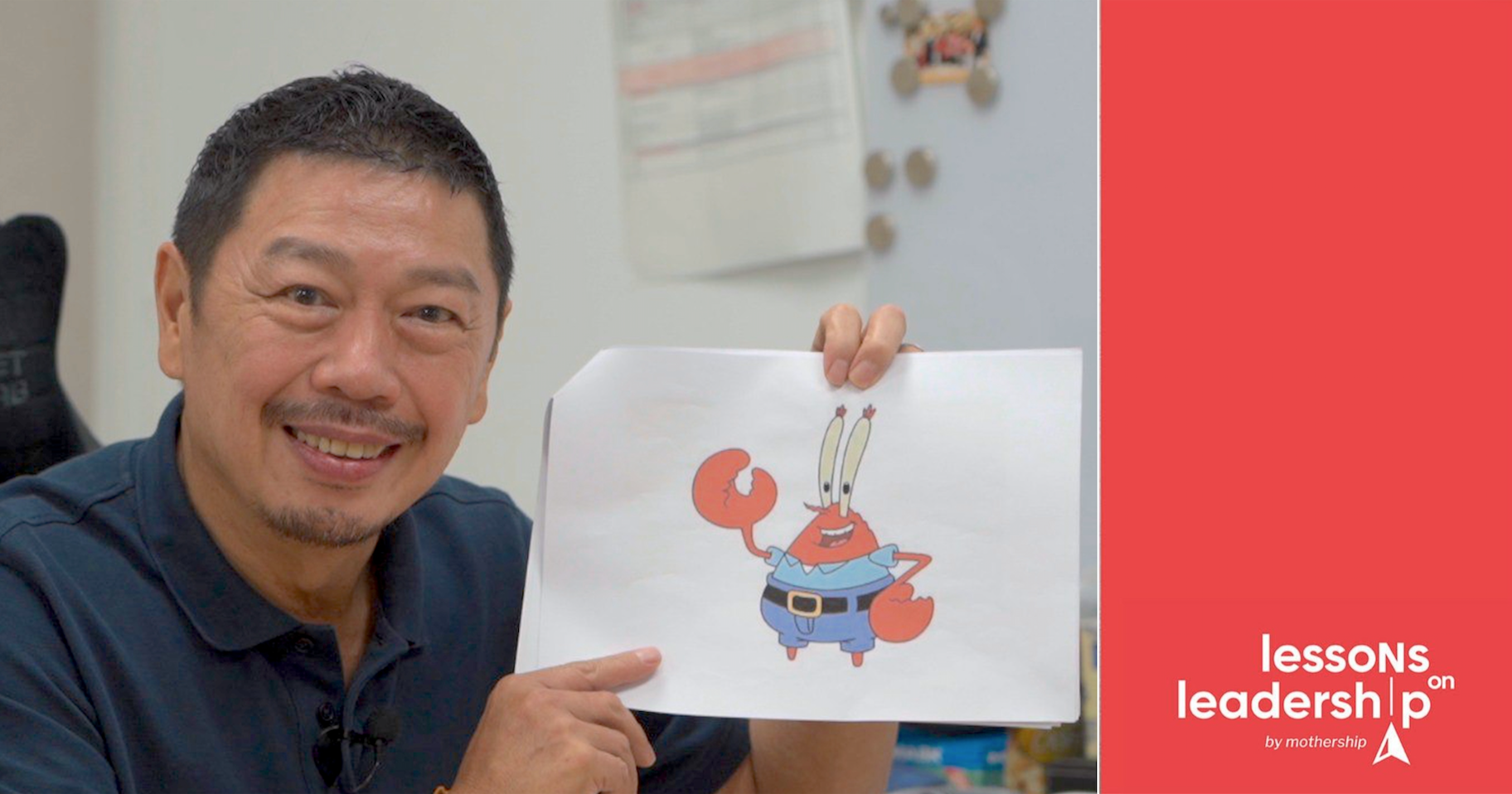
Follow us on Telegram for the latest updates: https://t.me/mothershipsg
It is not hard to imagine what ails the Jumbo Group.
With seven F&B brands amounting to 34 outlets under its belt, the homegrown restaurant group has seen its fair share of struggles in the ebb and flow of the pandemic.
Most of its restaurants, with seafood and Chinese menus, place emphasis on a communal dining experience. The two pax restrictions, which Singapore has been shifting in and out of, spell a constant threat to the industry.
Due to its price point and positioning, a meal at Jumbo has usually been reserved for the grandiosity of large family gatherings, rather than being viewed as a casual affair.
To top it off: in the good old non-Covid days, 80 per cent of its income came from tourists.
These are just some of the reasons that Ang Kiam Meng, the 58-year-old CEO and Executive Director of Jumbo Group, lists in the course of our one and a half hour-long conversation.
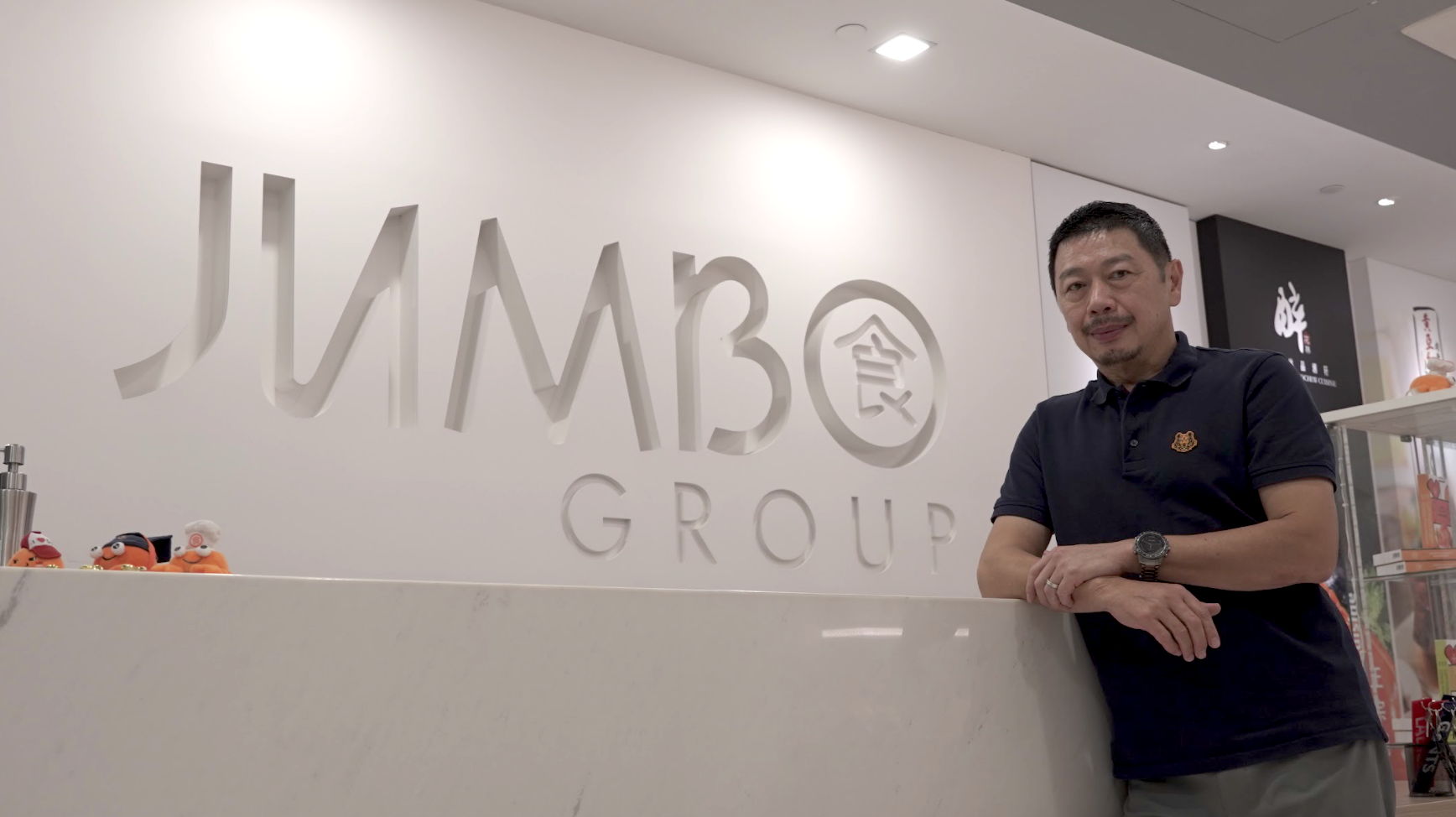 Photo by Brian Low
Photo by Brian Low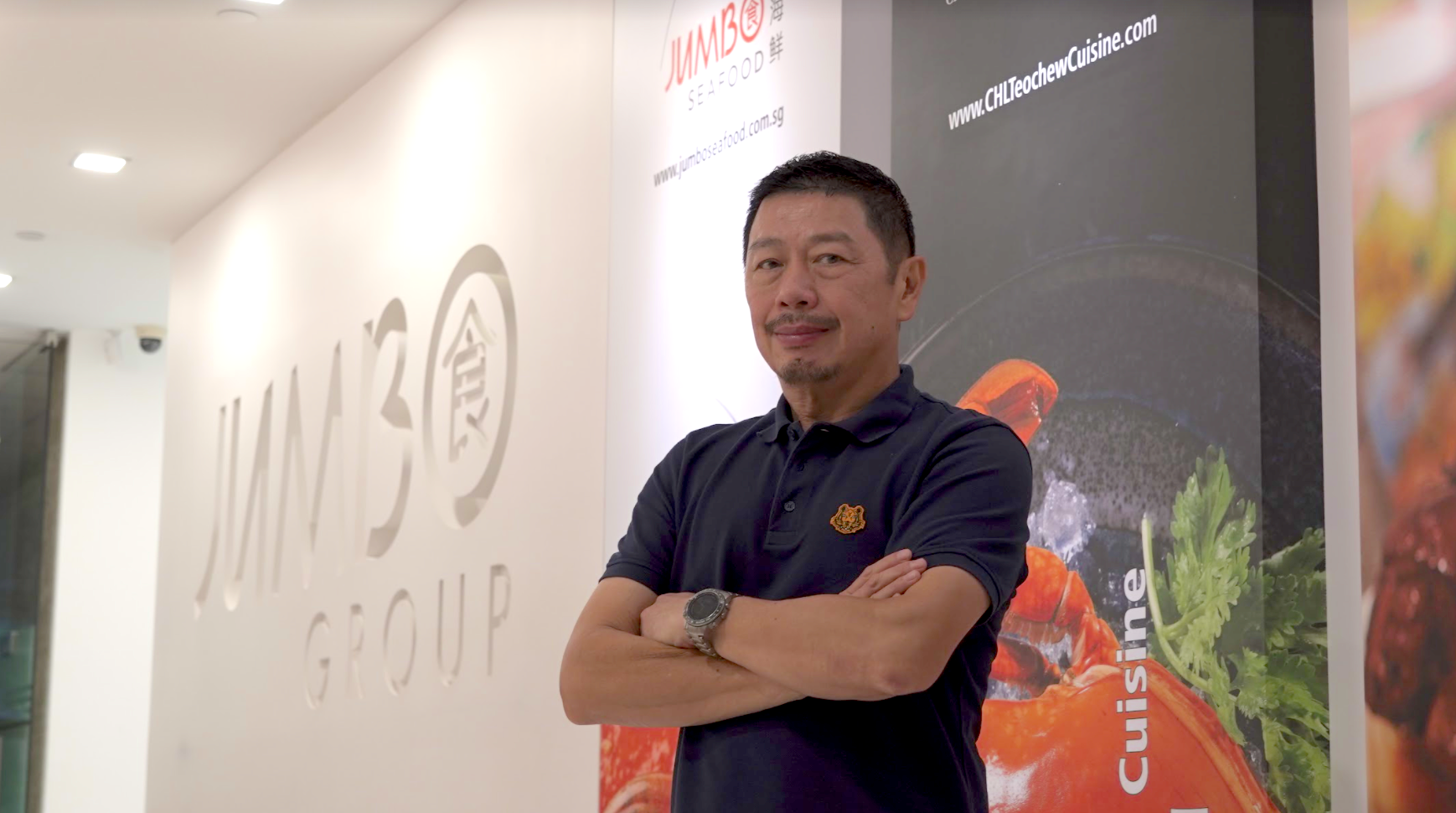 Photo by Brian Low
Photo by Brian LowFor the whole of FY2020, the group made a S$8.2 million loss, in contrast to a net profit of S$11.7 million for 2019.
It was, as Ang noted in its 2020 annual report, the company's first loss since its initial public listing.
FY2021 turned out to be even worse for the group, as it closed the year recently with a S$11.8 million loss and a decline in its revenues.
Ang explains,
"I think 2020 is not too bad because the actual lockdown only after Chinese New Year. So at least we have that Chinese New Year to be profitable. As a whole it's all burned away in the next nine months. And 2021 is worse, because we don't have Chinese New Year. So even Chinese New Year we are losing money. So it's throughout losing money, it's a matter how much."
Nine-month pay cut
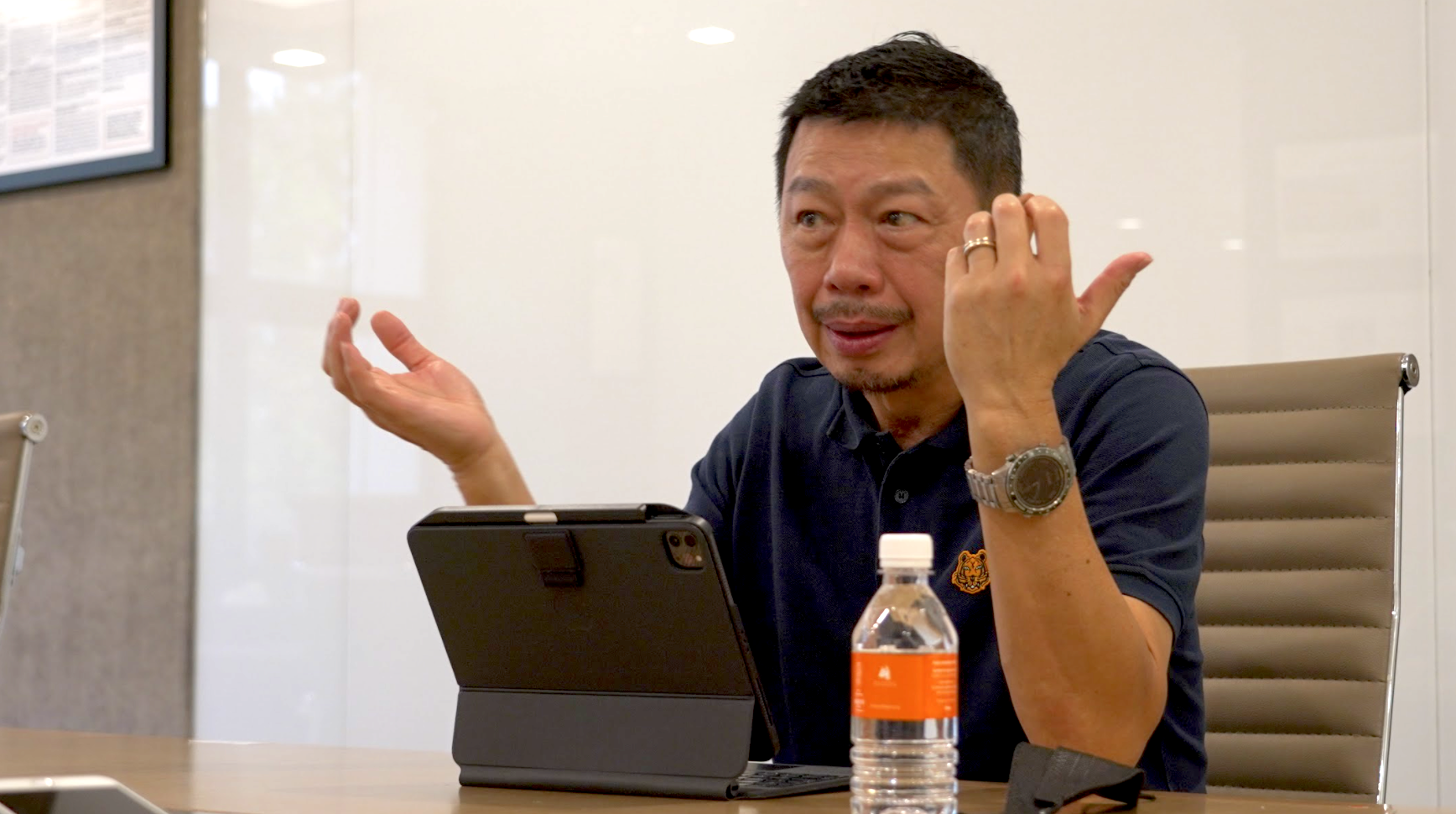 Photo by Brian Low
Photo by Brian LowAs expected, rental and labour costs are among the top components when it comes to overheads.
Although no retrenchment has been carried out, headcount has dropped by about 160 due to natural attrition without replacement.
Some staff have also been let go for poor performance, Ang adds.
Cost-saving measures implemented by the company include a pay cut for its employees, which has since run its course.
During the period, salaries were cut from 10 per cent to 40 per cent, depending on which "tier" of the corporate hierarchy one might be situated in.
Ground staff, for instance, experienced the lowest reductions at 10 per cent, while "senior staff" like Ang saw a 40 per cent reduction in their pay.
Ang elaborates, "That will help us to pull through, to cut loss lah, not to turn profit."
Outlets with dismal footfall have also been culled from their portfolio, such as Jumbo Seafood at Riverwalk, and two Ng Ah Sio Bak Kut Teh stores in the tourist belt, at Resort World Sentosa and Marina Bay Sands.
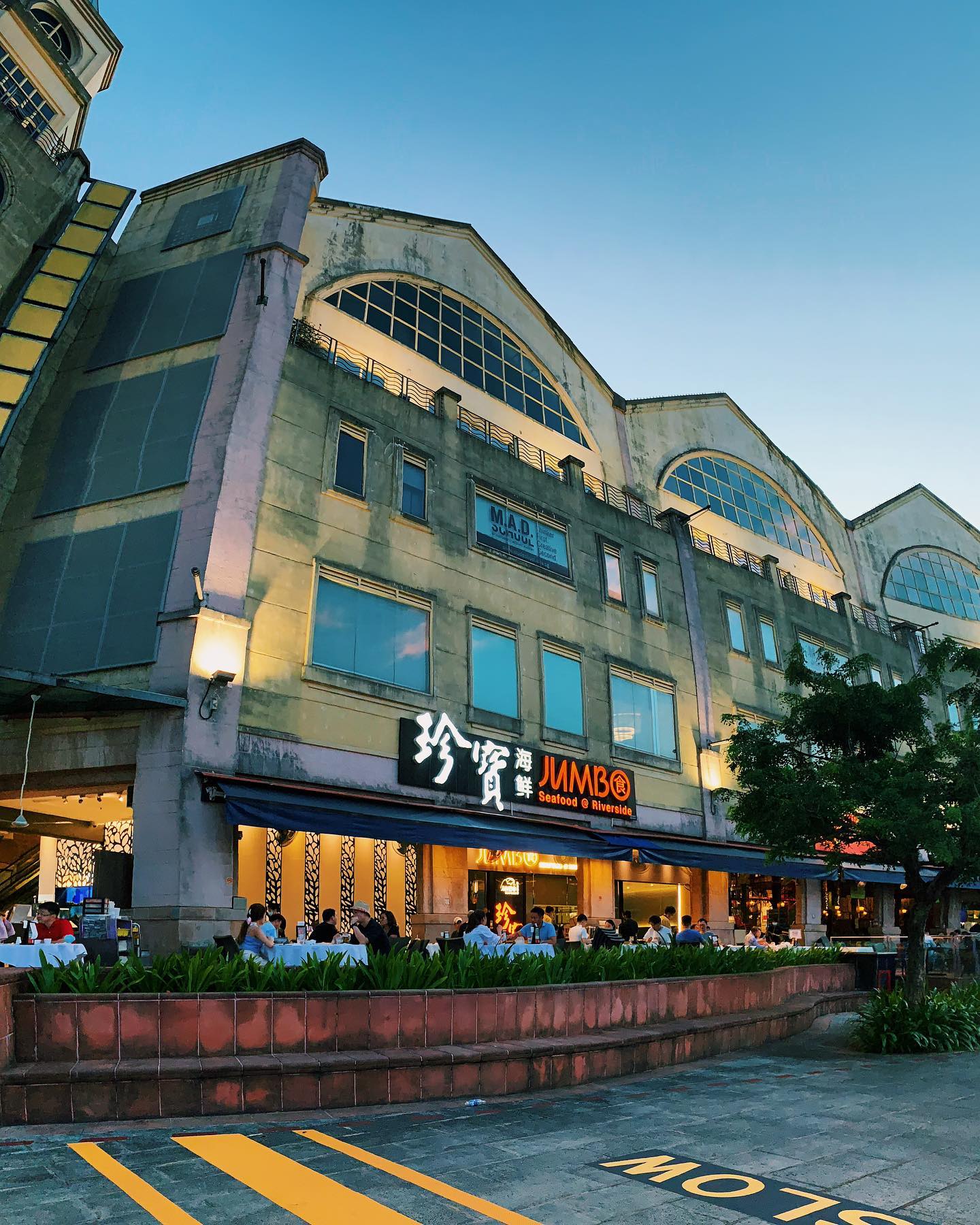 Photo via Jumbo Seafood Singapore/Facebook
Photo via Jumbo Seafood Singapore/Facebook"The Group recognised that business volumes at its Jumbo Seafood restaurants and Ng Ah Sio Bak Kut Teh outlets are unlikely to revert to levels anywhere near the pre-pandemic levels," the company's financial report stated.
To address the low morale among its employees, the company reinstated their full salaries after nine months, and further assured them of their livelihoods, Ang said.
"So the staff [were] quite cooperative and they have gone through the process with us. And then we realise that we cannot perpetually do that. So we reinstate their salaries after nine months. But that doesn't mean that business is better, but we are anticipating the turnaround [...]."
Making the turn
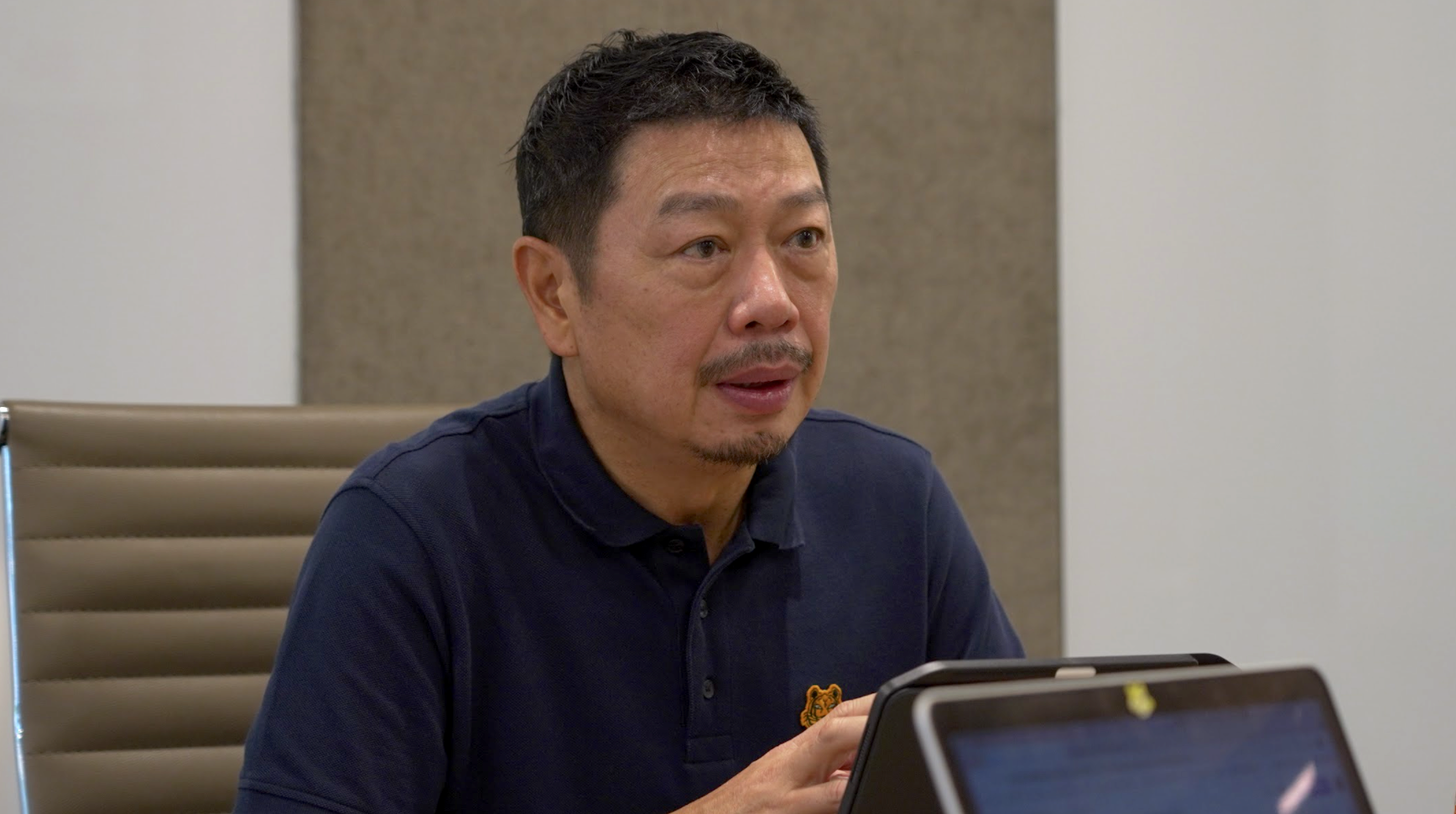 Photo by Brian Low
Photo by Brian LowAlthough the group is currently running on excess manpower, with staff that have been understandably "sluggish" and "unproductive" due to the slow pace of business, it is for good reason.
Despite the closure of several outlets, new stores and concepts are in the pipeline.
In Nov. 2020, Jumbo launched its first online concept, Hack It, to capture the "stay-home, small families, and younger audience."
With no dine-in space allocated for it, the "seafood in a bag" meal is only available for takeaway or delivery.
Such a concept not only saves on rent, but keeps the brand relevant during a period where dining out has become an uncertainty.
One month later, the group executed its first post-listing acquisition, bringing Kok Kee Wanton Noodle into its fold.
One of its outlets currently occupies the space at MBS that used to house Ng Ah Sio Bak Kut Teh.
As the saying about birds and stone(s) goes, the moves have accomplished two things: to cushion the company's plunging financials, and redirect its surplus manpower to fruitful ends.
Going back to his point about keeping livelihoods, Ang said,
"Sure there are some idling ones, but even if I reassign you I will not cut your pay, right? We will still pay okay but then be productive on a new job lah.
Even if you work in a kitchen [with] seafood [and are] highly skilled, if my wanton mee need you, you just go down and do wanton mee lor, bo bian lor. As long as you are willing to work, there's something for you."
Ang revealed that Hack It is doing "very well," with sales peaking at about S$300,000 a month—a figure that apparently even dine-in restaurants might be hard-pressed to hit.
In fact, mall landlords have also expressed their interest in having Hack It as a physical store, according to Ang.
Kok Kee, on the other hand, saw long queues during its Ang Mo Kio opening in October, which marked its fourth outlet on the island.
Tsiu Wah, a franchise manned by the group, has added two more outlets—Jem and Jewel Changi Airport—to its presence in Singapore as well.
2022 resolutions
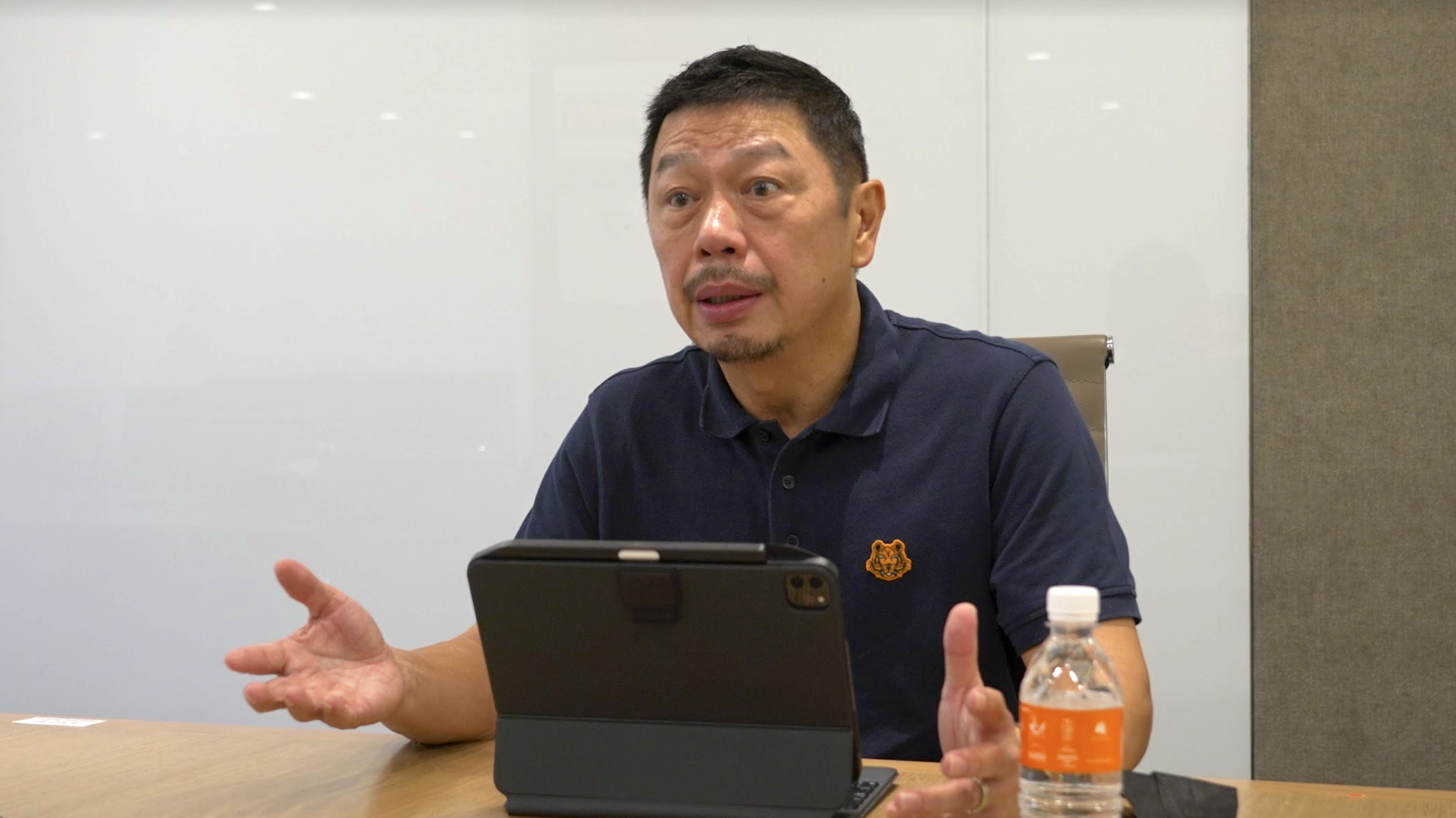 Photo by Brian Low
Photo by Brian Low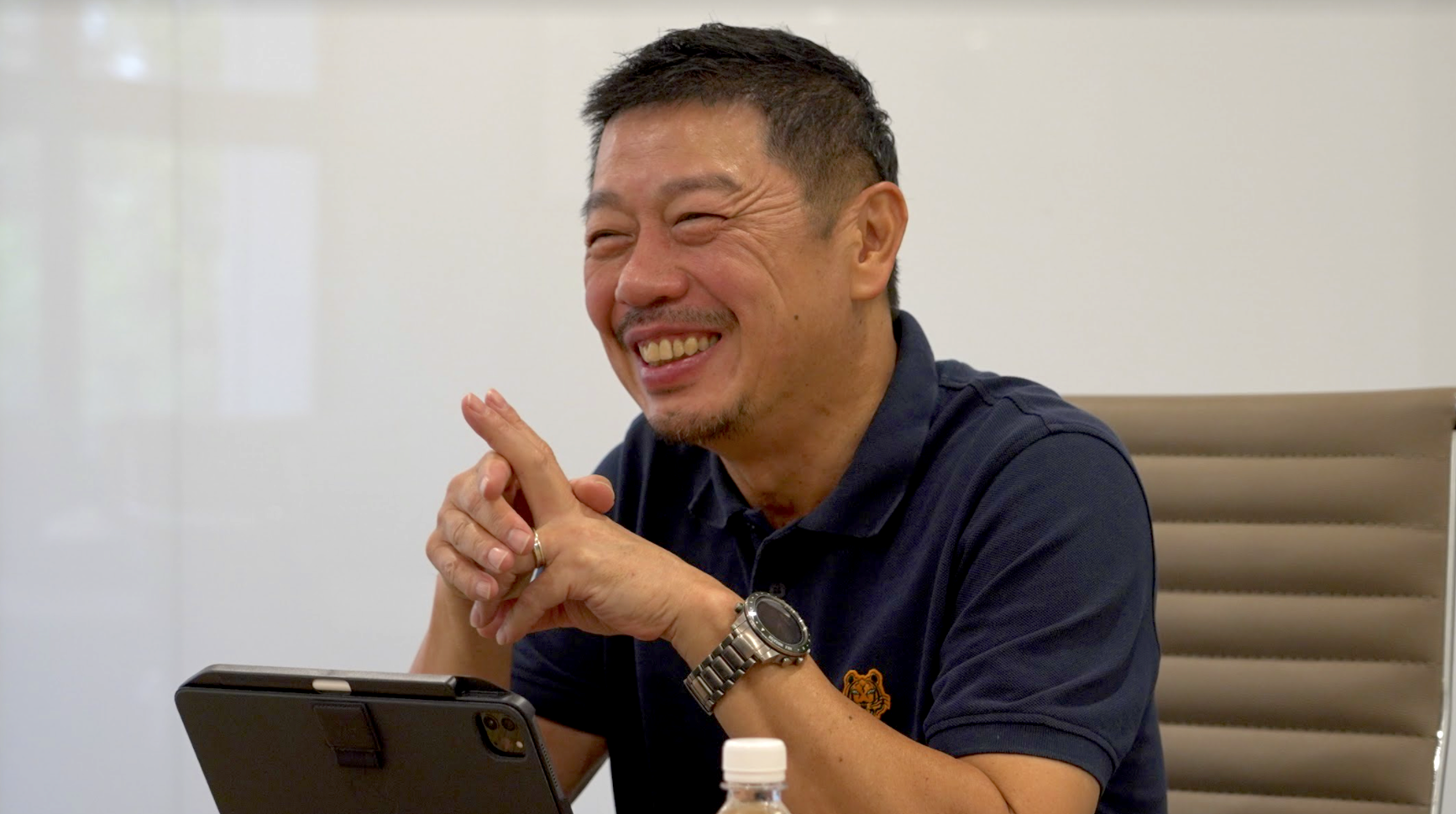 Photo by Brian Low
Photo by Brian LowAng did let us in on more exciting concepts that are coming up in 2022, but with details yet to be confirmed, we'll have to keep this article spoiler-free.
One of the ideas behind it, however, is to make seafood more accessible—"a bit more down-to-earth type of spending," the CEO teased.
"So people can come more often lah. Not like once a year in Jumbo you know, wait for you for one year ah, I think 花儿也谢了 (the flowers would have wilted: a Chinese saying to indicate that something has taken too long)."
As the group busies itself for the upcoming year, its reason for retaining a surfeit of staff becomes increasingly clear.
"We cannot wait for the turnaround then start to employ people," Ang said, displaying the tip of his business acumen.
What Jumbo aims to do in 2022 is to capture a larger segment of the domestic market, and rewire consumers' mindsets to make Chinese seafood meals an everyday option, somewhat.
This appears to be an imperative move to stem the company's bleeding, but it is a sufficiently daunting mission (in our amateur view, anyway), considering 1) the intense amount of competition in the scene and 2) that the fate of the restaurant group is resting on it.
In the past year, Jumbo Seafood has experimented with "tasting" sets, such as a signature set menu from S$58++ per person, and a dim sum afternoon tea set from S$48++ for two.
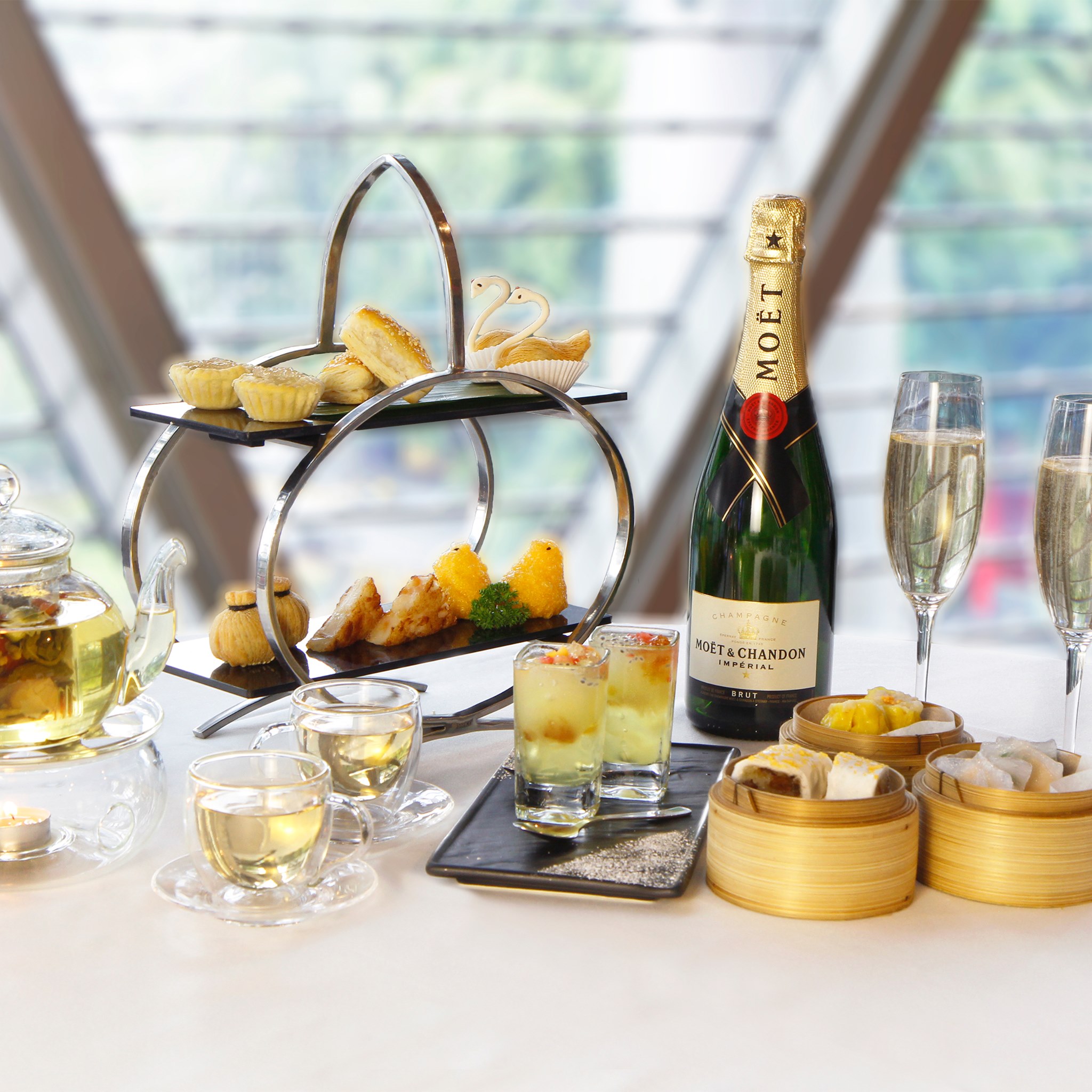 Photo via Jumbo Seafood Singapore/Facebook
Photo via Jumbo Seafood Singapore/Facebook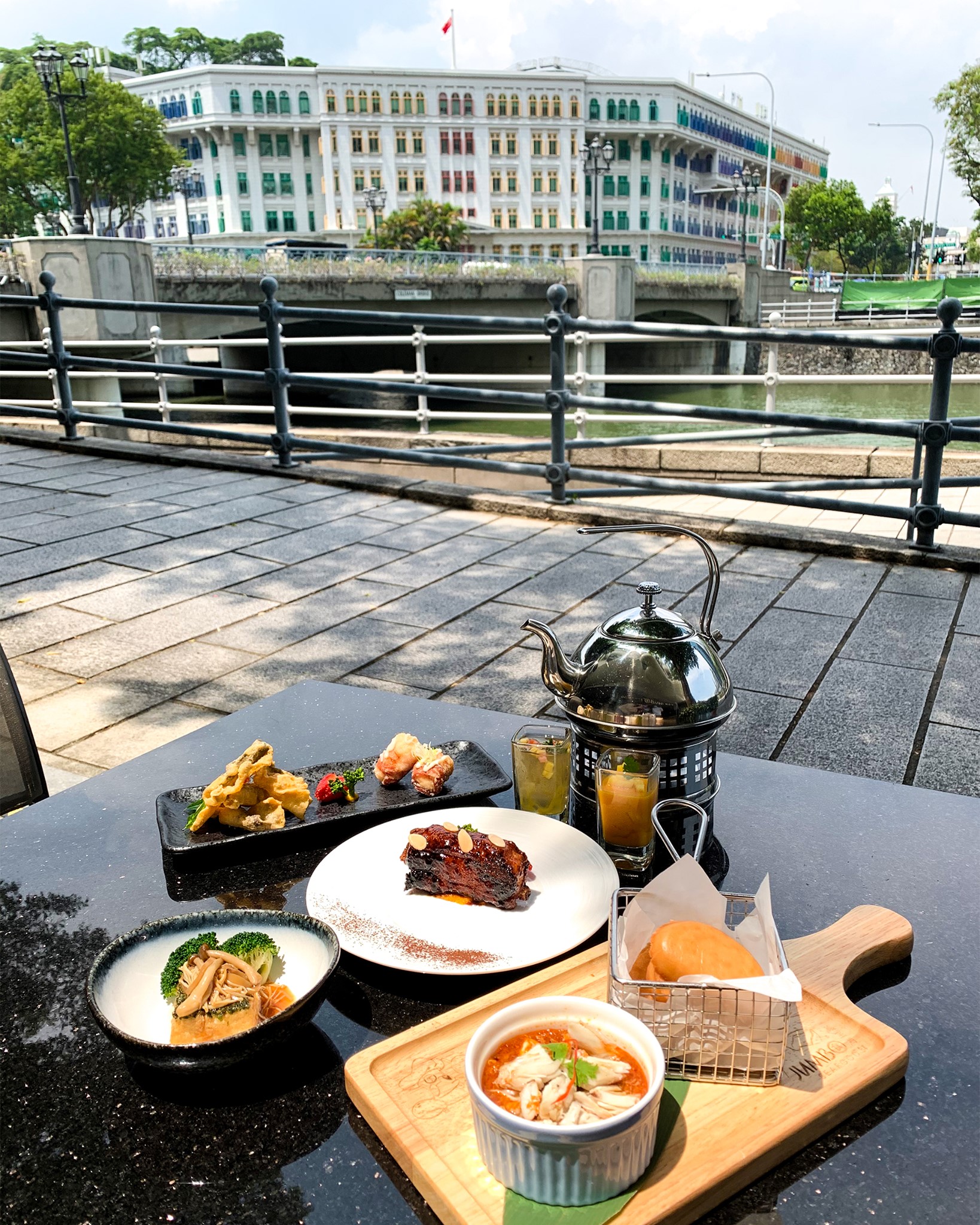 Photo via Jumbo Seafood Singapore/Facebook
Photo via Jumbo Seafood Singapore/FacebookThe idea, Ang explained, is for paired diners to experience the same variety that they might usually only get when dining in group, but without a hefty price tag and leftover food.
"Two person, you go to a traditional Chinese restaurant or seafood restaurant, you can't really do much right, maybe one plate of chilli crab or whatever crab and then fried rice, finished, [...] you're full.
[...] So for two person it [the tasting menu] gives you back that type of value that you [can get] in a group. [...] In doing so we hope to win back the Singapore crowd and change their mindset that seafood can only be eaten in big groups."
But Ang acknowledges that the awareness is not there yet, since the restaurant has only rolled out such menus relatively recently.
There's also a "mental block" on the consumers' part that Jumbo needs to address, as diners are already wired to look forward to a feast of big crabs when it comes to dining at the restaurant brand.
"So we need we need to do a lot of selling and educating in order to change people's mindset, and tell them 'Look, with the same amount money, two persons also can enjoy,'" Ang added.
The restaurant group is even considering selling Alaskan crab by the leg, as opposed to weight—a novel idea fit for pandemic dining.
The importance of being prudent
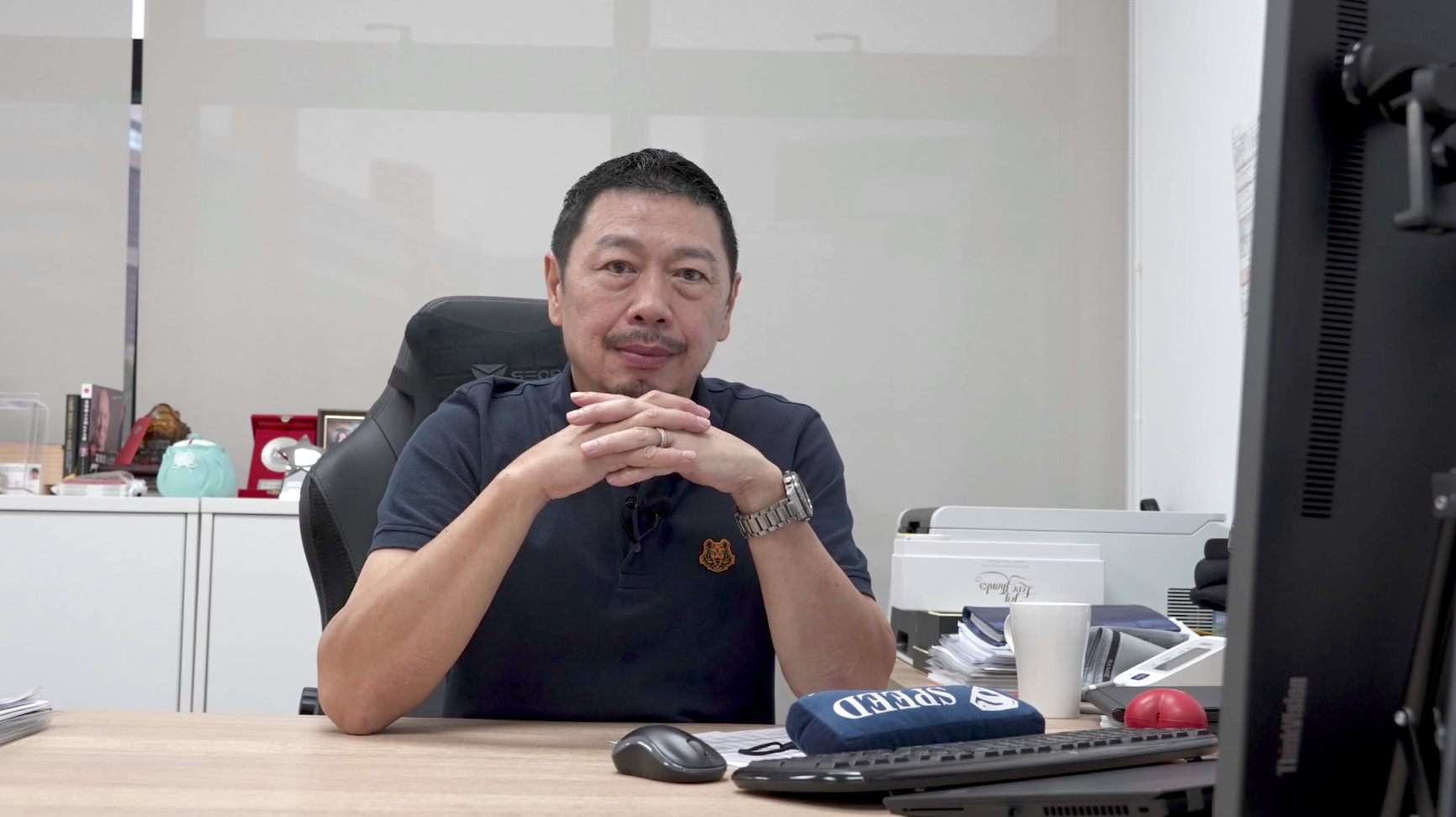 Ang at his desk. Photo by Brian Low
Ang at his desk. Photo by Brian Low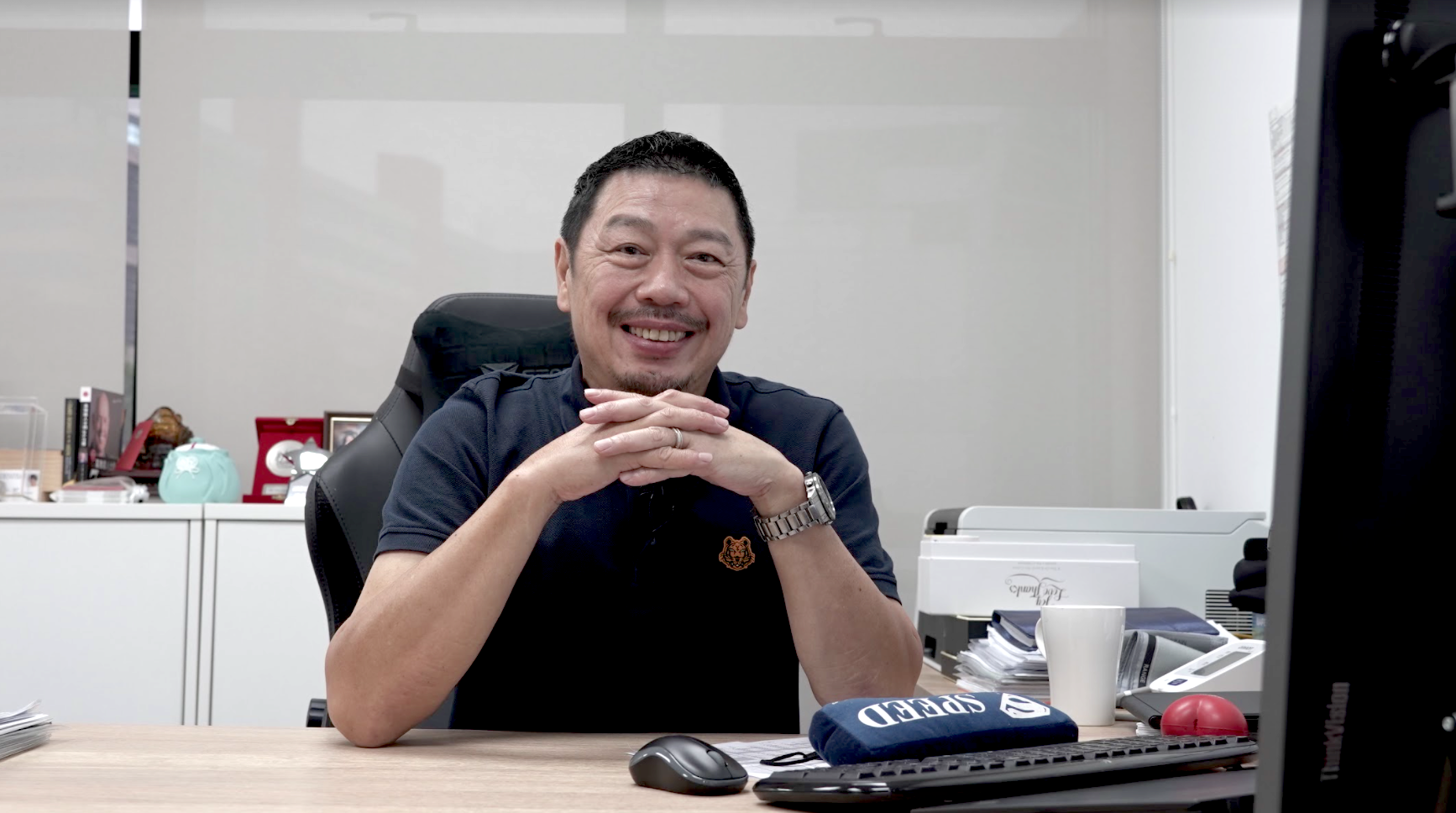 Photo by Brian Low
Photo by Brian LowFor all its plans and manoeuvres, one must not overlook another factor that has allowed Jumbo to survive "quite comfortably" up till this point: financial prudence.
"It's also because [we are] well-managed financially that we have enough reserves. You can see that we are still opening outlets right, all these are [because the] management all these years, we didn't really over expand [...]."
Right now, Ang is hoping for "weekend business" every day, meaning that sales volume on Mondays to Fridays hits the current number for weekends.
This will bring sales back to about 50 per cent of its original figure, but that is already "good enough" for Ang.
"I don't expect 100 per cent of visitors coming back until the full travel [re]opening," he projected.
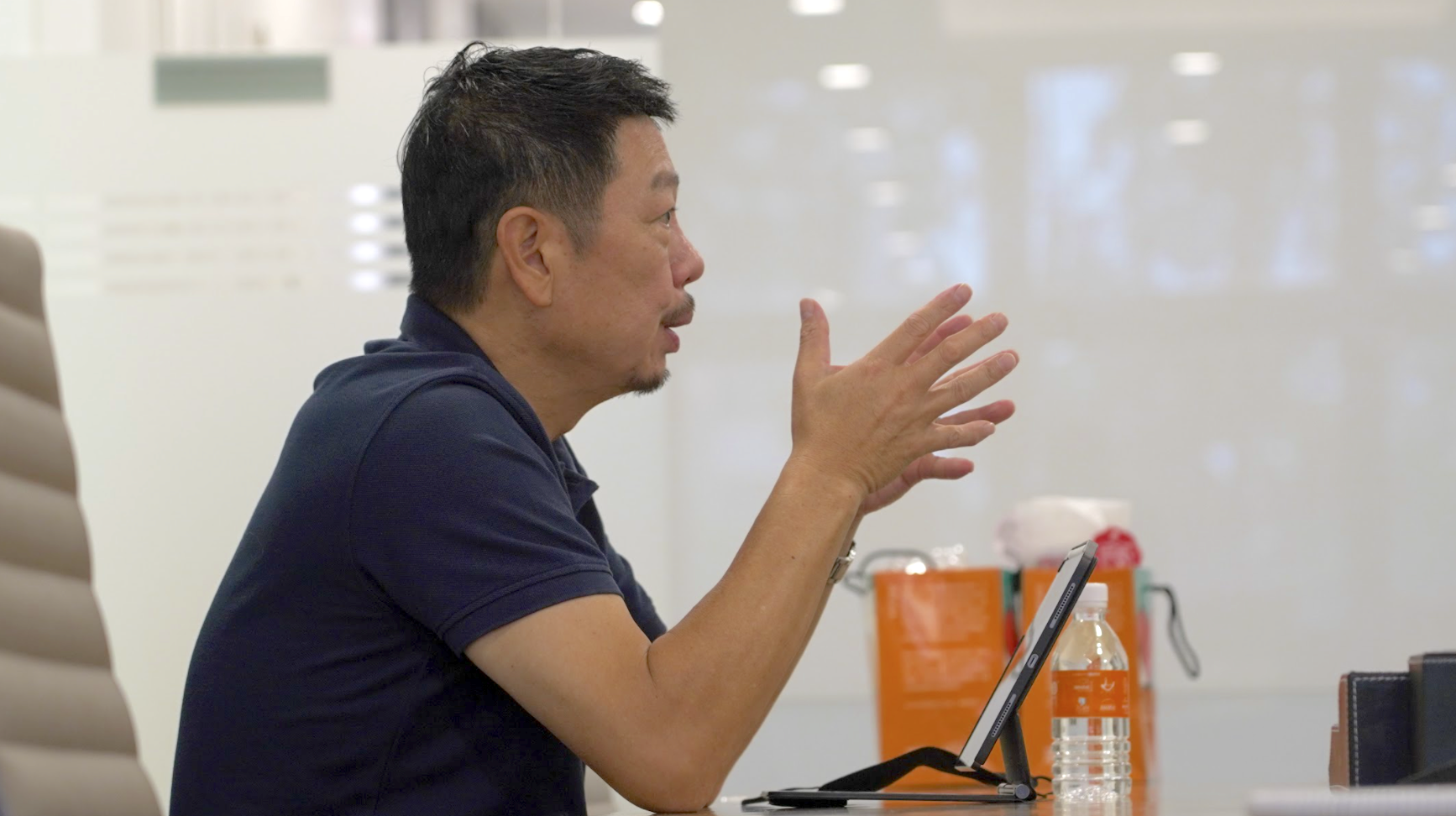 Photo by Brian Low
Photo by Brian LowIn addition to dine-in strategies, the group also launched Love, Afare in June this year—something that Ang enthusiastically promoted in the last legs of our conversation.
The cheekily named retail line unites brands under the group's portfolio, and consists of premix pastes and condiments, merchandise, as well as snacks and tea.
"This is another way to educate or engage our younger generation [...]," Ang told me as he proudly laid out all the products in an Instagram-worthy flat lay.
When I told Ang that I would like to take a photo of the "cute" items, the CEO gets ready to pose, before realising that I was only intending to snap the products.
"So, together. Oh you not taking me ah?" Ang said as we burst out laughing.
"The cute one is not you," joked one of Ang's staff who had joined us.
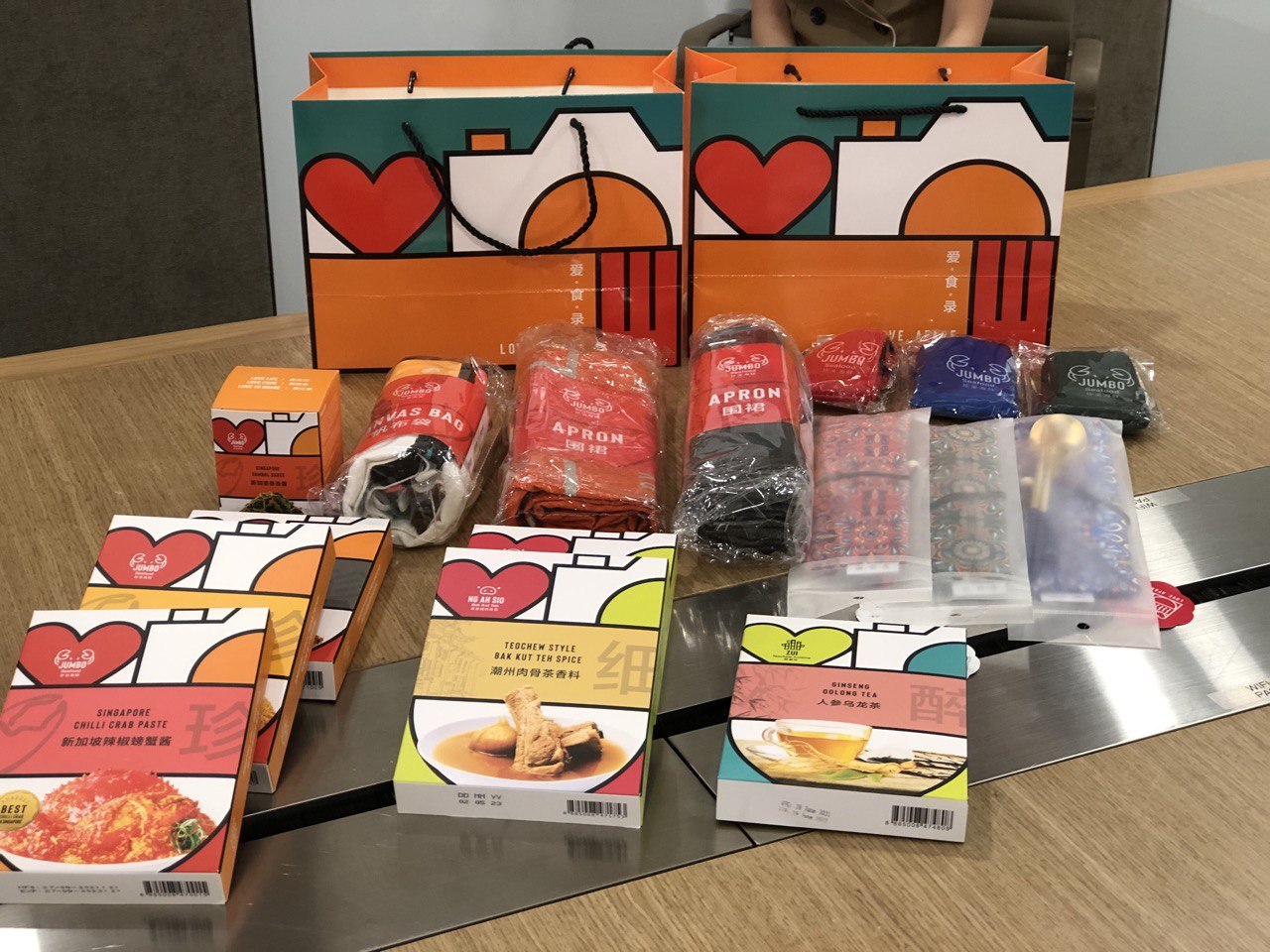 The line-up (without Ang). Photo by Mandy How.
The line-up (without Ang). Photo by Mandy How.This exhibition of humour is congruent with Ang's response to a rather dry and theoretical question that I had asked earlier: what aspect of leadership does he think is most important in steering his people through this period?
"First thing first, you have to stay positive, because if you fall, everyone will fall lah," Ang said simply.
Lessons on Leadership is a Mothership series about the inspiring stories of Singapore’s business leaders and entrepreneurs, as well as the lessons and values we can learn from their lived experiences.
Comments